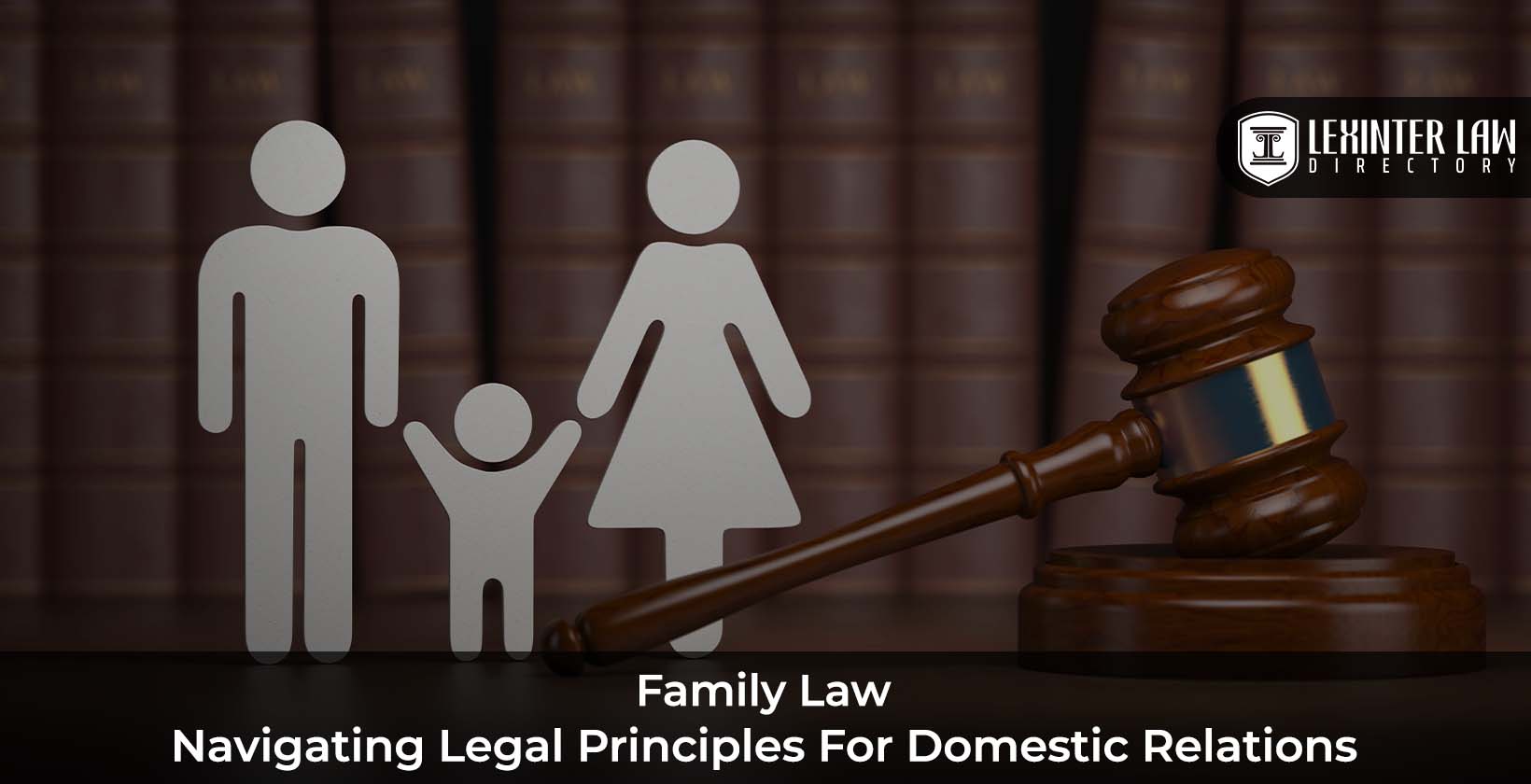Arbitration for Car Accidents
Been in a car accident lately? You may be wondering what your options are for seeking compensation for your injuries and damages. One option you may not have considered is arbitration. Arbitration is a form of alternative dispute resolution (ADR) that allows parties to resolve their disputes outside of court. It is often a faster, cheaper, and more private way to resolve disputes than going to court. Arbitration has many fans and many critics, and both sides put forth strong arguments for their position. Arbitration can be binding or non-binding, depending on your contract. So if you are considering arbitration, it is critical to have an attorney review the contract before you sign anything.
What is Arbitration?
Arbitration is a form of alternative dispute resolution (ADR) that allows parties to resolve their disputes outside of court. Arbitration is typically conducted by a neutral third party, known as an arbitrator, who makes a binding decision on the dispute. The arbitration process is typically less formal than a trial, and the rules of evidence are more flexible. This can make arbitration a more efficient and cost-effective way to resolve disputes. Arbitration is often used to resolve disputes in a variety of areas, including commercial contracts, employment disputes, and personal injury cases such as car accidents.
How Does Arbitration Work?
Arbitration is typically initiated by one party filing a demand for arbitration with the other party. The demand for arbitration must specify the nature of the dispute and the relief sought. The other party then has a certain amount of time to respond to the demand for arbitration. If the parties cannot agree on an arbitrator, the court will appoint one. The arbitration hearing is typically held in a private setting, and the parties are represented by attorneys. The arbitrator will hear evidence from both parties and then issue a decision. The decision of the arbitrator is typically binding on both parties and can only be appealed in limited circumstances.
Benefits of Arbitration
Arbitration has several benefits over traditional litigation. First, arbitration is typically faster and more efficient than litigation. The arbitration process is less formal than a trial, and the rules of evidence are more flexible. This can allow the parties to resolve their dispute more quickly and inexpensively. Second, arbitration is often more private than litigation. The arbitration hearing is typically held in a private setting, and the parties are not required to disclose sensitive information to the public. Third, binding arbitration is final and there is no appeal, which can add time and expense to the process. However, in some cases, non-binding arbitration can be used as a first step before going to court.
Drawbacks of Arbitration
Arbitration also has some drawbacks. First, arbitration is not as transparent as litigation. The arbitration hearing is typically not open to the public, and the parties are not required to disclose sensitive information. This can make it difficult for the public to hold the arbitrator accountable. Second, arbitration is not always fair. The arbitrator is not bound by the rules of evidence, and he or she may not have the same level of expertise as a judge. This can lead to decisions that are not based on the law or the facts of the case.
Arbitration for Car Accidents: A Faster, Cheaper, and More Private Option
If you’ve been involved in a car accident, you may be wondering about your legal options. One option that you may want to consider is arbitration. Arbitration is a form of alternative dispute resolution that can be faster, cheaper, and more private than traditional litigation.
Benefits of Arbitration
There are a number of benefits to arbitration, including:
- It’s faster. Arbitration typically takes months to complete, while litigation can take years.
- It’s less expensive. The costs of arbitration are typically much lower than the costs of litigation.
- It’s more private. Arbitration proceedings are typically closed to the public, which can be important if you’re concerned about your privacy.
- It’s more flexible. Arbitration can be tailored to the specific needs of the parties involved, which can make it a more efficient and effective way to resolve a dispute.
- It’s binding. The decision of an arbitrator is binding on both parties, which means that you can avoid the risk of a lengthy and expensive appeal process.
How Arbitration Works
Arbitration is a process in which the parties to a dispute agree to submit their dispute to a neutral third party, known as an arbitrator. The arbitrator will hear evidence from both parties and then make a decision. The decision of the arbitrator is typically binding on both parties.
Is Arbitration Right for You?
Arbitration is not right for everyone. If you’re considering arbitration, you should carefully weigh the pros and cons to see if it’s the right option for you.
Arbitration for Car Accidents: A Quick and Efficient Dispute Resolution
Car accidents can be stressful and disruptive, leaving you with injuries, property damage, and financial burdens. Litigation can be a lengthy and costly process, which is why arbitration has emerged as a viable alternative for resolving car accident disputes.
Arbitration is a private, streamlined process where both parties present their cases to a neutral third party, known as an arbitrator. The arbitrator makes a binding decision that is typically final and not subject to appeal. This process is often faster and less expensive than traditional litigation, making it an attractive option for car accident victims.
How to Choose an Arbitrator
The selection of an arbitrator is crucial to the success of the arbitration process. Here are a few key factors to consider when choosing an arbitrator:
Experience: An experienced arbitrator can provide valuable insights and expertise, ensuring a fair and efficient resolution.
Expertise: When choosing an arbitrator, consider their specific knowledge and experience in handling car accident disputes, as well as their understanding of relevant laws and regulations.
Impartiality: Impartiality is essential for a fair arbitration process. Look for arbitrators who have no prior relationships or biases towards either party involved in the dispute.
Communication skills: Effective communication is crucial for both parties, especially during the arbitration hearing. Choose an arbitrator who is clear, concise, and attentive.
Availability: The arbitrator’s availability is a practical consideration. Ensure that the arbitrator can accommodate your schedule and the timeframe for the arbitration process.
Arbitration for Car Accidents
Many drivers find themselves embroiled in the unfortunate situation of a car accident. When such an incident arises, navigating the aftermath can be both stressful and confusing. One avenue for resolving car accident disputes is through arbitration, a process that offers several advantages over traditional litigation. This article delves into the arbitration process, shedding light on its key elements, benefits, and drawbacks.
The Arbitration Process
Arbitration entails presenting claims and defenses to an impartial third party known as an arbitrator. This individual, typically an expert in the field of law or a related discipline, plays a role similar to that of a judge in a traditional courtroom setting. The parties involved in the dispute, accompanied by their respective legal counsel, present their arguments and evidence to the arbitrator, who then renders a binding decision.
Benefits of Arbitration
One of the primary advantages of arbitration is its efficiency. Compared to traditional litigation, arbitration proceedings tend to be swifter and more streamlined, often concluding within a matter of months rather than years. Moreover, arbitration offers a greater degree of privacy than court proceedings, which can be particularly beneficial for parties seeking to avoid public scrutiny.
Drawbacks of Arbitration
While arbitration can be an effective means of dispute resolution, it also has its limitations. One potential drawback is the lack of formal discovery procedures, which can limit the ability of parties to obtain all relevant information necessary for their case. Additionally, arbitration decisions are typically final and binding, leaving limited avenues for appeal.
Deciding whether arbitration is the right choice for a particular car accident dispute requires careful consideration. Parties should consult with legal counsel to weigh the pros and cons thoroughly. While arbitration may not be suitable for all cases, it can provide a swift, private, and cost-effective means of resolving car accident disputes.
Arbitration for Car Accidents: Navigating the Process
Car accidents can be a major disruption in one’s life. Beyond the physical aftermath, there are often legal ramifications to consider, including arbitration. Arbitration is an alternative method of dispute resolution that can provide a faster and more private way to resolve car accident claims.
The Role of Arbitration in Car Accidents
If the insurance companies cannot agree on a settlement, arbitration may be an option. Unlike traditional litigation, arbitration is not overseen by a judge or jury but rather by a neutral third party known as an arbitrator. The arbitrator is responsible for reviewing the evidence, hearing arguments from both sides, and ultimately issuing a binding decision.
The Arbitrator’s Decision
The arbitrator’s decision is usually binding on the parties, meaning that it cannot be appealed. However, there are limited exceptions to this rule, such as if the decision was obtained through fraud or if it violates public policy.
Preparing for Arbitration
Preparing for arbitration is crucial to ensure a successful outcome. This involves gathering all relevant evidence, such as medical records, witness statements, and police reports. It is also important to have a clear understanding of the arbitration process and the legal issues involved.
Benefits of Arbitration
Arbitration offers several advantages over traditional litigation, including:
- Speed: Arbitration is typically faster than litigation, as there is no need to wait for a court date.
- Privacy: Arbitration is a private process, unlike court proceedings, which are open to the public.
- Cost: Arbitration can be less expensive than litigation, as it eliminates the need for a trial and other court costs.
- Flexibility: Arbitration can be tailored to meet the specific needs of the parties, such as by setting specific rules or procedures.
Limitations of Arbitration
It is important to note that arbitration also has some limitations, including:
- Lack of Judicial Review: Arbitration decisions are usually not subject to appeal, which means that there is limited recourse if the decision is unfavorable.
- Limited Discovery: Arbitration typically involves less discovery than litigation, which can limit the amount of evidence that is available.
- Bias: Arbitrators are not always impartial, and there is the potential for bias to influence the decision.
Considering Arbitration
Whether or not to pursue arbitration is a complex decision that should be made carefully. It is important to weigh the benefits and limitations of arbitration against the specific circumstances of the case. Consultation with an experienced attorney can help individuals make an informed decision about arbitration and navigate the process effectively.
Arbitration for Car Accidents
After a car accident, you may have to deal with insurance companies and lawyers. Finding a lawyer can be helpful, costly, and time-consuming. Some people choose to use arbitration to resolve their disputes. Arbitration is a private process where a neutral third party (the arbitrator) listens to both sides of the story and makes a decision. Arbitration can be faster and less expensive than going to court, but it is vital to understand what you are getting into before you agree to arbitrate. Ok, let’s get started and continue reading on to learn more about arbitration for car accidents.
What is Arbitration?
Arbitration is a form of alternative dispute resolution (ADR) that is used to resolve disputes without going to court. Arbitration is often used in car accident cases because it is faster and less expensive than litigation. In arbitration, both parties present their cases to a neutral third party called an arbitrator. The arbitrator then makes a decision based on the evidence presented.
How Does Arbitration Work?
Arbitration is a relatively simple process. First, both parties must agree to arbitrate their dispute. Once the agreement is in place, the parties will select an arbitrator. The arbitrator will then hold a hearing where both parties will present their cases. After the hearing, the arbitrator will make a decision. The decision of the arbitrator is usually binding on both parties.
Benefits of Arbitration
There are several benefits to arbitration, including:
- Speed: Arbitration is often much faster than litigation. This is because arbitration proceedings are not subject to the same procedural rules as court proceedings.
- Cost: Arbitration is often less expensive than litigation. This is because arbitration proceedings are typically shorter and do not require the same level of preparation as court proceedings.
- Privacy: Arbitration proceedings are private, which means that the details of your dispute will not be made public.
- Enforceability: Arbitration awards are generally enforceable in court. This means that if one party does not comply with the award, the other party can go to court to enforce it.
Who Should Consider Arbitration?
Arbitration is not right for everyone. However, it can be a good option for people who want to resolve their disputes quickly, inexpensively, and privately.
Challenging an Arbitration Award
An arbitration award can only be challenged in very limited circumstances, such as if the arbitrator was biased or the award was based on fraud. If you believe that the arbitration award was unfair, you should speak to an attorney to discuss your options.
Getting Help
If you are considering arbitration for a car accident, it is vital to get help from an experienced attorney. An attorney can help you understand your rights and options and can represent you in the arbitration process.




Leave a Reply